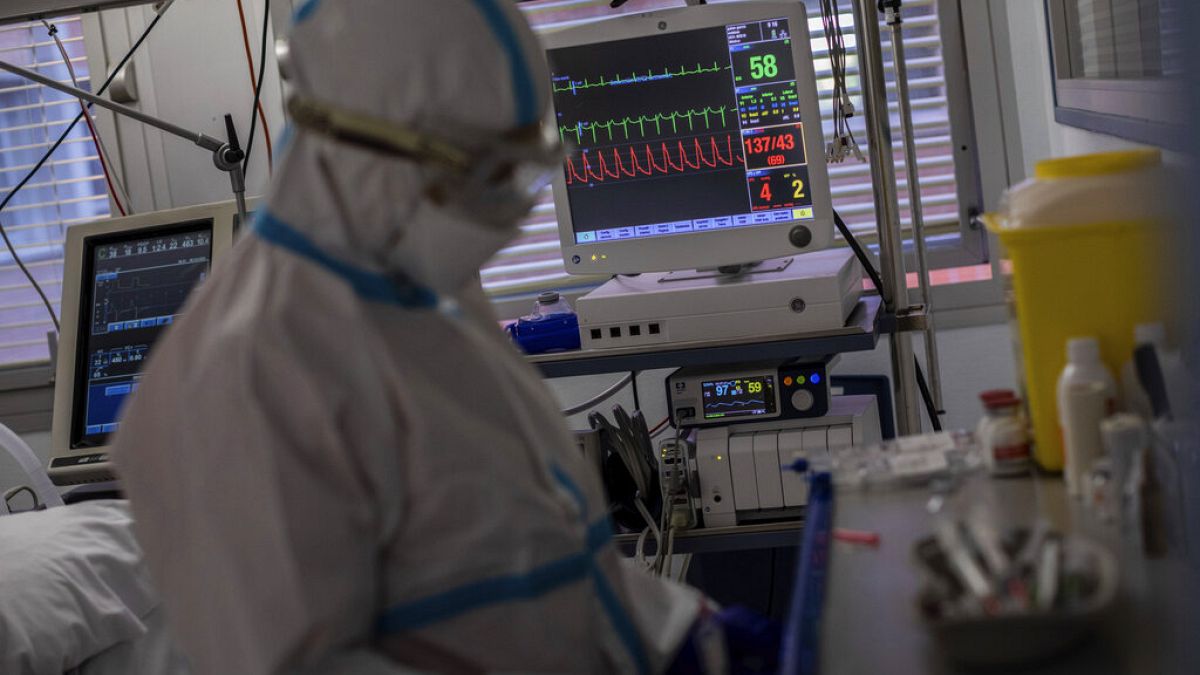Connecting and sharing health data could speed up diagnoses, improve research and ensure continuity of treatment across EU borders. Regulation and privacy protection will be paramount, says Belgian deputy prime minister Petra De Sutter
The views and opinions expressed in this article are those of the author.
One of the conclusions of the coronavirus pandemic is that we need more EU collaboration on health. This includes digital health.
Even before the outbreak, a vast majority of EU citizens wanted the EU to do more on health. The virus has proven that this is an urgent matter, and that the digitisation of health data can be an important tool.
I am fully convinced that digital solutions, AI and data sharing can be part of the solution for the European health challenges.
The case for safely sharing health data
Connecting and sharing health data can facilitate faster diagnoses and better research, contributing to disease prevention and more patient-oriented and personalised care.
It would also ensure the continuity of treatment across EU borders. The sharing of health data has been a necessity during the outbreak of the pandemic, to track the disease and share findings, carry out large clinical trials for medicines and vaccines, and for contact tracing and the development of warning apps.
The handling of the pandemic demonstrated how decentralised and disconnected the EU member states are on healthcare, which is why we need an EU Health Data Space.
Good regulation is imperative to enable the initiatives. The central goal of an EU Health Data Space should be to improve the health of EU citizens without imperilling privacy issues, and to ensure that the benefits of the digitalization are shared equitably. Digital health should serve the needs of patients, scientists and health professionals.
An important challenge for the Union is to ensure the interoperability of health data at national and EU level. Currently, about one third of member states does not have policies regarding the interoperability of health data.
Focus should be put on knowledge-sharing and funding to help every member state achieve to the same level, and to ensure that we move forward together. Uniform technical standards should ensure that data are collected and shared in a harmonised and integrated way within the EU.
No one left behind
Another challenge to achieve the European Health Data Space is digital inclusion. The EU should promote better e-health literacy and improved digital skills, for example through digital education, training and confidence-building regarding the sharing and use of health data. We want to leave no one behind in this age of digitisation.
Trust is a key enabler. Concerns from the public regarding privacy issues must be taken seriously. We need to guarantee that health data-sharing serves medical and scientific research purposes, rather than economic interests.
To convince citizens about the potential of digital health, the EU and national governments should prioritise health data security and privacy protection to ensure public trust in digital health.
There is also a need to establish clear standards regarding the protection of privacy. It is essential that businesses and organisations are informed of their obligations and the need to ensure compliance.
An important step was taken with the GDPR (General Data Protection Regulation) in 2018 with the objective of unifying the protection of citizens’ privacy and the free movement of personal data.
This will remain of great importance to the European Health Data Space. Furthermore, the revision of the current NIS (Network and Information Systems) Directive provides the opportunity to strengthen basic security requirements, and to manage information security on national and EU level to prevent the risk of cybersecurity breaches.
For all these challenges, European collaboration is essential.
Prof. Dr. Petra De Sutter is the deputy Prime Minister of Belgium who previously served as an MEP from 2019 to 2020. Before entering politics she was a professor of gynaecology at Ghent University.
The content of this op-ed was discussed during a public debate organised by the European Health Task Force on June 10, 2021. Other panelists at this public debate were Mario Campolargo (Director-General of DIGIT for the European Commission), Menno Kok (managing director of EIT Health Belgium–Netherlands), Bert Verdonck (program manager of health data Initiatives and GAIA-X, Philips), Elena Bonfiglioli (Microsoft's regional business leader on health and life sciences in the EMEA region) and John Gordon (head of digital at Pfizer). It was further discussed at the European Health Summit on the December 9, 2021.
